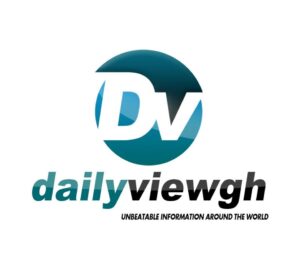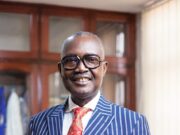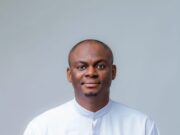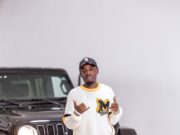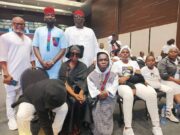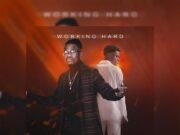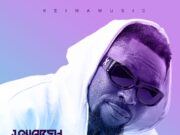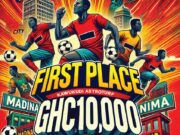“In the long-run, every government is the exact symbol of its people, with their wisdom and unwisdom”. (Thomas Carlyle – Scottish-born English writer)
“The Seven Social Sins are:
Wealth without work.
Pleasure without conscience.
Knowledge without character.
Commerce without morality.
Science without humanity.
Worship without sacrifice.
Politics without principle.
From a sermon given by Frederick Lewis Donaldson in Westminster Abbey, London, on March 20, 1925.”
― Frederick Lewis Donaldson
Today, I wish to deal with the Social Sin of Politics Without Principle.
I am convinced now more than ever, that politics of intimidation, violence, abuse of incumbency, the use of our tax money by the party in power, tribalism and vote stealing if continued to 2016 and beyond, will condemn and entrench the majority of our people in poverty in all its forms – poor housing, bad health, short lifespan, inferior education, disease and unemployment. A resource rich country like Ghana deserves better than what its people are experiencing. Nothing will change if we continue to do the same things and keep making the same mistakes. I ask, what is the point in engaging in this thing we loosely call “politics” in Ghana?. This Politics Without Principle?
I am worried about what will happen to Ghana during and after the 2016 elections. I am not afraid about how the PPP will fare in the 2016 elections. I have won and lost elections. So I have experienced what you feel when you lose and when you win. I have experienced what burdens we carry when we contest elections at the local and national levels. So I know that we are senselessly deluding ourselves that we are in a democracy, that there is freedom of choice and that elections are “free and fair”. The unfairness in Ghana’s elections starts way before the actual elections and continues to election day. Election observers are well-meaning but they have become another element of cover-up for stealing and bribery.
I am afraid for Ghana. Will we remain a one country, largely united under one administration after the 2016 elections? Will the Ghanaian economy have the ability to sustain the use of the government treasury to finance a partisan campaign? Will we still have confidence in using the ballot box to elect our leaders? I am believer in democracy. But I am questioning what type of democracy we have that allows some political parties to act with impunity, cheat and divide the same people they want to rule. Judging by the preparation for the aborted by-election in Wulensi in 2012, the disputed general election in 2012 and the recent by-election in Talensi, the 2016 election can destroy the moral fabric, economic prospects and democratic credentials of our country if the political parties, particularly the ruling NDC does not change the habit of using the public purse to largely finance its campaign.
The 1992 Constitution
To look ahead to the 2016 elections, we must look back to the beginning of the Fourth Republic. After the infamous “hand over to whom?” question was asked, we went ahead and did just that, handed over the administration of this country to the same man and the same band of men and women bent on hanging on to power by all means, at all cost using our tax money. Quite often, in our country, our people accept the views of what our situation is a lot more coming through the lenses of foreign institutions and individuals than local ones. For several years, I have campaigned against the excessive centralization of powers in one position, that of the President of the Republic of Ghana. Lip service is all we the locals get. It is this problem of excessive centralization of powers that is dragging our country more and more to become a habitual below expectation performer. And it is because those who happen to be in power are always happy to use the powers to try and steal elections. So if Ghanaians will not listen to me, here is what a foreign institution paid some researchers to produce about our governance system:
“Effective participation in the making and implementation of public policy has been limited to a small political elite which has succeeded in capturing the presidency, albeit through fairly competitive elections, and with it control of the public resources that the constitution places under control of the executive branch. Ghana’s political system combines competitive elections with what social scientists have called neopatrimonial rule. The principal democracy and governance problem we identify in this report is the excessive concentration of political power in the executive branch. The powers of the president dwarf those
of the other branches of government. The president in Ghana possesses vast political and economic resources that he can employ to secure political support. Electoral competition is the only real check on executive dominance, as the opposition party will work to win power, often at almost any cost. But although both major political parties, the National Democratic Congress (NDC) and the New Patriotic Party (NPP), accept the legitimacy of the rules that govern politics in Ghana, these rules have serious flaws. The elite consensus among political parties is an agreement to maintain the status quo, regardless of its increasingly
negative impact on democratic practice and good governance, because it offers a clear path to gaining power and thus access to the vast network of state resources. The increasingly hyper-aggressive, winner-take-all nature of Ghanaian elections puts tremendous pressure on the one institution that has become a symbol of the country’s successful democratic transition, the Electoral Commission (EC). What happens if the EC is no longer able to perform its duties with the credibility it has commanded in the past? We raise a note of caution that the confluence of good luck and competence that marked the very close 2008 election cannot be guaranteed in the future. Ghanaians have higher expectations for the economic and social benefits of democracy than the government seems able to produce through current institutional arrangements. In this regard, the political status quo has gone about as far as it can in moving Ghanaian democracy forward and, by extension, in creating the conditions for broad-based economic growth and social development.” (Ghana Democracy & Governance Assessment Report, August 2011 USAID).
So there you have it. We have been lucky, so far. What happens when we run out of luck? What happens when those excluded from governance and those cheated during the process of participating in the elections decide that they cannot take it anymore?
The Electoral Commission
The Electoral Commission as it stands now, has not been able to fully enforce the Political Parties Law and make the political parties who want to come and govern this country law-abiding. I saw political parties in Talensi who by the Political Parties Law cannot meet the requirements of the law. Some are not even making any attempt to do so. Political parties are supposed to be national in character, have offices in two-thirds of the districts, raise funds from Ghanaians within the prescribed limits, deliver annual returns, among others. I know how the PPP has been working hard to raise money and stay active to ensure that we meet the requirements. Does the EC know how the parties raised money to fund their Talensi campaigns or the 2012 campaign? We have so-called political parties in Ghana that are sole proprietors, ethnic based, specific regions in content, etc. We have an EC that is election focused and is behind times. Otherwise, why does the EC still encouraging the use of party polling agents when they do not exist in advanced democracies; Why do we not have continuous registration of voters when they reach age 18; Why are we not allowing Ghanaians abroad to vote; And why are we not using electronic voting methods? The new Chairman of the Electoral Commission must bring this important institution into the 21st Century and make it strong by enforcing the laws that it is supposed to work with.
Budget Deficits
I am not here to play a numbers game. But budget deficits matter. Many countries suffer this problem so it is the ability of government to manage the situation so the people do not suffer that is important. Particularly key in this is the problem being solved – where the deficit came from. Ghana’s budget deficit in 2014 was reportedly more than 9.6% of the GDP. This is why the IMF has made a deal with government that includes removing subsidies on fuel, water, electricity etc. to reduce the deficit from 2015 going forward. But we seem to forget one thing. Budget deficits have been experienced consistently every four years i.e. after every election. I am not referring to planned deficits. My point is that election year spending by governments in the Fourth Republic has put our economy at risk and collapsed many businesses. Based on what I saw in Talensi, the Mahama Administration is on course to repeat the excessive spending in election year 2016 and bring back problems for all of us and whoever wins the election. I want to be wrong on this. But if you are a business person, I suggest to you to start right now and brace yourself for a rough 2017.
Tribalism
I am not an Ewe or an Ashanti so should that mean that my party cannot win support or votes from the Volta or the Ashanti regions? I am not a Frafra, Dagomba or Ga so should I avoid areas where these ethnic people can be found?
The 1992 constitution aids and abets tribalism in our politics. The constitution does not stop at being Ghanaian as what qualifies one to contest election to go to parliament. It requires you to “hail” from an area or live there for a number of years. In the First Republic, an Nzema won election to go to Parliament in Accra. An Ewe went to Parliament from the Central Region. In this Fourth Republic, due to tribal-based politics, some seats are “reserved” for political parties identified with those tribes. If this is repeated in 2016 and beyond, where will the competition in our campaigns be? What will the point be in contesting an election in an area where your party is not considered a member of the tribe? What sort of democracy is this where tribalism overtakes merit? Without merit, this nation we call Ghana can never be prosperous and our good people will continue to run away to other countries. Those who occupy most of our political positions will be “inferiors”.
Corruption
Every time someone takes the NDC Administration to task for not fighting corruption practically, vigorously and seriously, they fight back, not to prove that they are dealing with it, but they try to cover the matter up by pointing to others as also being corrupt. Some of their leading members and communication team members delight in taking to the airwaves in what has become known in Ghanaian politics as “equalization”. Essentially, that we are all the same. Not true. The point of this is, the NDC was not forced to take power to administer the affairs of this country. So no matter what happened or who did what before they were handed this country to administer, it is their responsibility to solve the problems we face as a nation. Who should we run to for protection against corruption if not the NDC and President John Dramani Mahama?
When the Anti-Corruption Crusade was launched by the Progressive People’s Party (PPP) and other partners, some people rose up with their usual propaganda – “corruption is everywhere”, “even Kufuor said corruption is as old as Adam”, “every administration has engaged in corruption” and so on and so forth. Is this something to be proud of? That the Mahama Adminstration is not more corrupt than the previous ones? John Mahama and Nana Akufo-Addo are people I consider as friends. So I know that the PPP’s crusade is not about this game of who is more corrupt. The fact is that corruption is the rot killing this nation and the PPP has successfully raised the consciousness of our people to understand that if we do not deal with this rot systematically and successfully, the majority of Ghanaians will continue to live in filth and poverty.
The PPP crusade about corruption is not an attempt to make the government unpopular and as a result lose the next election. The next election is in December 2016, more than a year away. President Mahama should work to solve the corruption problem. The nation will not win the war against corruption through propaganda, “equalization” and mere finger pointing.
In 2012, I decided to take a personal stand against corruption. This I did in the most public way possible and one that is unprecedented in the history of our country. I made my income tax returns from the 1980s to 2011 public at a press conference that was broadcast live on radio and television nationally. On that same occasion, I made public, the asset declarations made to the Auditor-General’s Office as a minister of state, member of parliament and presidential candidate. I made all my cancelled and current passports from 1970 to date public. I made the results of a comprehensive medical examination public. I wanted Ghanaians to know that my aspiration is to be an incorruptible leader with transparency. It was not about being better than everyone else but to set an example of practical transparency. Unfortunately, many people including the media saw this as just another event and did not even bother to look at the documents. For a lot of them the question was, could I win the election or not.
So my point is, I have made my personal commitment against corruption. I am asking that each and everyone also makes their own commitment in their own way. We can all lead from wherever we find ourselves. If the taxi driver, media men and women, brick layer, carpenter, teacher, civil servant, banker, lawyer, architect, pastor, etc. all work to stamp out corruption where they work and live, we will make tremendous progress as a people, together.
Violence & Intimidation
I have been in elections from the Assembly level to Parliamentary and Presidential levels. The desperation I witnessed in 2012 in Wulensi and the general election has shot up judging by the Talensi experience. If as President Mahama said Talensi ends up to be a dress rehearsal for 2016, then God save Ghana. Sometimes, I am seen as being too mild, perhaps too “correct”. It is not because I am not capable of competing boot by boot. I have invested my sweat, emotions, everything in this country. If I do not work to keep Ghana together, who will? Many people have hidden their funds overseas, in safer shores. Mine is visible, right here in Ghana. I have a responsibility to my family, my customers and business partners to be a responsible Ghanaian. I am a public servant, not a career politician.
But some of us also know how to buy guns, bows and arrows. We know where poor, hungry and desperate people are who do not care what happens to them today. If some people can raise an Azorka Army and others Bolga Bull Dogs, what happens if those of us who have disciplined ourselves so far decide to raise the Sea Lions for counter attack? What happens when the silent sufferers decide that enough is enough? Is this what the Minister of Interior was promoting when he said, “violence begets violence”?
Once Again – Another Relevant Quotation on Our Governance
“Based on extensive interviews in Ghana and a thorough review of existing academic and applied literature, the principal conclusions of Democracy International’s assessment team are as follows: · There is the perception of growing politicization in the economic and social spheres as well as in traditional and religious life. · The likelihood of changing the political game from the current winner-takes-all system to one in which politics is a means of promoting the collective good seems low at this point, as both main parties largely agree on the purpose of the political game: to capture the patronage networks that make continued political success more likely. · The two main political parties agree on the rules of the game because there is a realistic possibility that either party could win the next election. A governance system based largely on patronage, as is normally associated with single-party states, is functioning in a democratic context in which two, balanced adversaries assure its continuation, if not its stability. What happens if this system moves out of balance, with one party dominating the other? Our view is that it is better to not wait to find out. · The principal hope for the type of fundamental change necessary to dislodge the negative incentives the status quo creates is the constitutional review process that has identified a number of critical reforms for action.” (USAID report 2011)
Private Sector
Our government and the people continue to pay lip service to the indigenous private sector. Many people find it easier to associate themselves with government to get wealth than to toil in the private sector. Any nation that does this continuously is doomed to servant status in the community of nations. A lot of our business people are forced to work under cover, hide their wealth and successes because they are afraid of being victimized. They do not want publicity. How long can we continue to light candles and cover them so the flames go out? How can big, big businesses with potential to provide thousands of jobs to our youth and export goods and services develop if the owners do not want to be seen or heard? We need big Ghanaian banks, big Ghanaian farms, big Ghanaian manufacturers, big Ghanaian media houses, etc so that we can have a vibrant job producing private sector here in Ghana. Politics should be about promoting our own to, grow, develop and prosper and not just about winning elections.
All political parties particularly the ruling NDC must understand that money does not wear party colors.
NDC-NPP
To many of us, the dust has not settled though two parties have seen electoral success so far. Electoral success has not turned into governing success. Every now and then we stop to ask ourselves if the democracy we are practicing is all that it is sold to be. What we are doing is just entrenching a few people in power with all the resources to waste as they wish and condemning the majority to a life of poverty and misery.
A number of Ghanaians vote believing that all politicians are the same and will deliver benefits to themselves but do nothing positive for the rest of the people. Voting has become for some a vote for ethnic reasons or party colours. Eventually the people will realize that if they continue to vote along tribal lines and accept a few Cedis during election times will keep them poor. They will wake up to the fact that a few privileged politicians have prospered only on the knowledge that they have a 50-50 chance to win power no matter how badly they treat the people or mismanage the finances of the nation.
I am a believer that people do wake up. Eventually, they will get it. So 2016 must not be about the NDC or the NPP. It must be about how parties like the PPP educate Ghanaians to understand that their level of poverty is directly linked to the choices they make at election time. When the people get to know that the competence and experience of the people they vote for matters, they will not treat the 2016 election as one giant carnival and an opportunity to eat, drink, gain a few cedis.
However long it takes, that time must come in Ghana when the voters demand positive results from those their votes give power to. This roll of the dice, voting for the highest bidder must come to an end. The dictatorship of these two parties must crash.
Finally
For the PPP, I ask, do we have the guts, the patience and enough patriotism to sacrifice some comfort to wage a relentless battle on tribal-based politics, corruption and wanton waste of public resources? By joining we made a commitment to provide incorruptible leadership to this country. We agreed to make education, healthcare and job creation priorities so that our people can become prosperous and our nation great and strong. We cannot do this if we join the rest, the professional politicians who attach themselves to political parties for an opportunity to empty the state’s coffers to fill their private pockets while the people go hungry. We want to win elections, yes, but we do not want to damage the country or terrorize our own people in the process.
The Founders of this party are independent minded people who decided to put together an Independent Movement built on a progressive foundation. We are a political party because we want to stay together and propagate our ideas and principles. We are a political party also because the Electoral Commission would not allow us to be independent and still use the same agenda and manifesto. I cannot join the NDC or the NPP or any other party. No amount of money can get me to abandon my independent principles. But we can collaborate with others and we must seriously promote this to offer the country the type of incorruptible leadership our people deserve.
To Ghanaians I say to you, 2016 must not become an NPP or NDC affair. I will fully back a coalition of independent-minded people and political parties who will agree amend the constitution to give power back to the people so they can elect their own DCEs; reduce the powers of the President and remove ministers from Parliament as members; provide free, compulsory and continuous education to every child; and check corruption. Should this coalition happen, I can willingly take a back seat if that is what is needed for us to be successful. Ghana is more important than the ambition of any one of us. And soon, my participation in active partisan politics will come to an end. I am over sixty years old and proud of it. So, I am asking myself, what legacy will I leave?
Today, I leave you with an appropriate quotation from a politician from afar:
“It is not the critic who counts; not the man who points out how the strong man stumbles, or where the doer of deeds could have done them better. The credit belongs to the man who is actually in the arena, whose face is marred by dust and sweat and blood; who strives valiantly; who errs, who comes short again and again, because there is no effort without error and shortcoming; but who does actually strive to do the deeds; who knows great enthusiasms, the great devotions; who spends himself in a worthy cause; who at the best knows in the end the triumph of high achievement, and who at the worst, if he fails, at least fails while daring greatly, so that his place shall never be with those cold and timid souls who neither know victory nor defeat.”
― Theodore Roosevelt
I know one thing for sure – a country gets what it votes for.
Thank you, for your attention.
